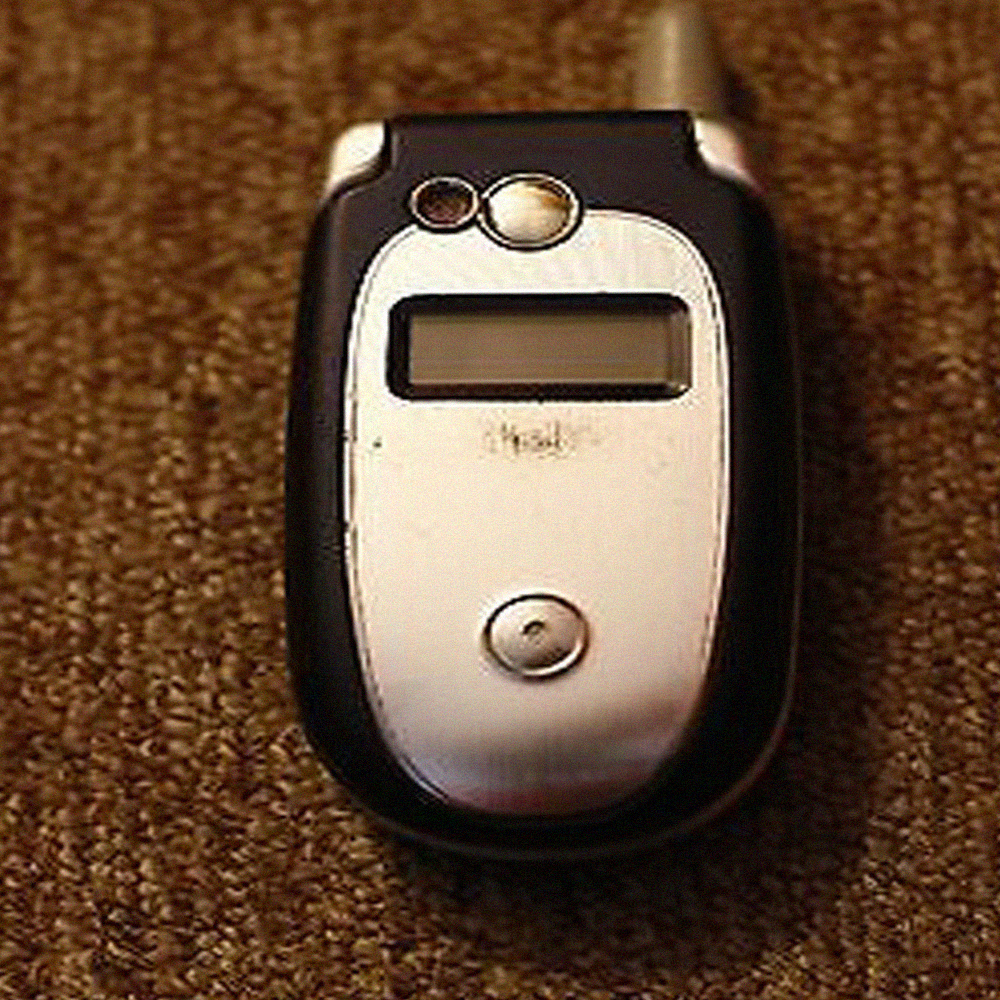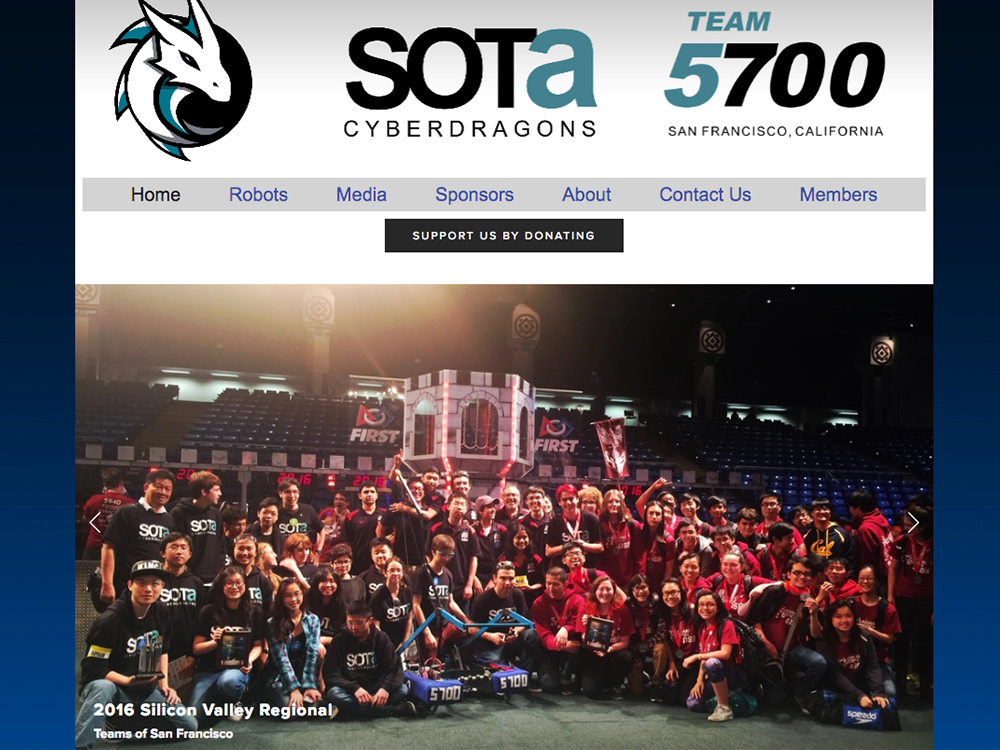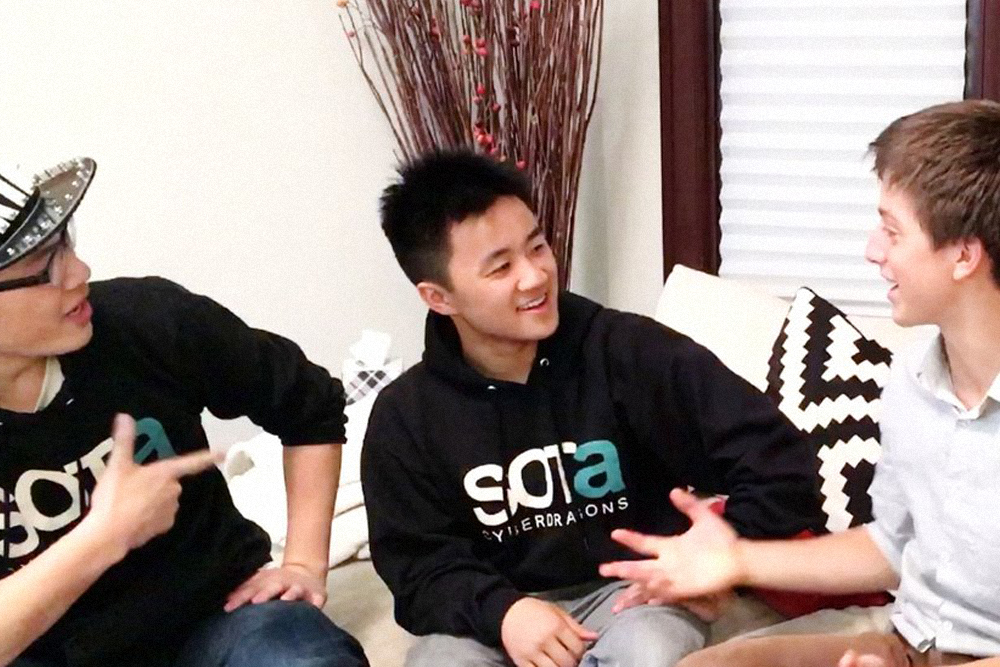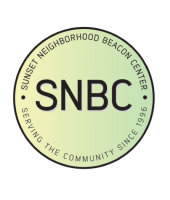There are two words that best describe me during the weeks leading up to freshman year: nervous wreck. I was at square one when it came to friends, clubs, and academics. By pure luck, during the first week of school, a then-friend (now-best-friend) in the Piano department introduced me to a few members of the SOTA robotics club, and their spirits drew me in like a magnet. A few weeks later, at Club Rush, I headed over to the robotics booth and signed up.
In the same way that I had stressed about the beginning of my freshman year, I stressed over which robotics department would be a good fit for me. During my planning, Business Development never came to mind, but the Cyberdragons mentor, founder of the team and SOTA alumni Nick Mak, got me invested in the department we affectionately call ‘Biz Dev.’
I was at a hardware meetup one day, discussing how the team’s YouTube channel could reach a wider viewer base, when I asked Nick, “So, what type of audience are you trying to reach?” At the time, the Biz Dev head wasn’t really up for leading a team, and since my question seemed to show that I knew my business lingo, Nick asked me whether I’d be interested in being an active member. At the time, though, I didn’t know that by “active member”, he really meant active director! “Sure,” I replied, unaware of the responsibilities that came with the position.
A week later, after multiple meetings with the team captain, the Biz Dev head stepped down and I became his successor. A day later, I posted a team announcement on our team’s communication platform:
Hi All,
For those of you who don’t know me, I’m Angelina Wong, a freshman in the piano department who will be taking over as the head of Business Development.
Our first meeting will be on Wednesday, October 12th.
Agenda: Welcome and Sponsorship/Grant Opportunities
Time & Place: Lunchtime in the SOTA Library
A week flew by, and the date of the meeting arrived. As the meeting time approached, I began pacing around the library, wondering whether or not the team of Caucasian band boys would show up to listen to the ideas of an Asian freshman girl in the Piano department. I was lucky to have grown up in a family where my parents instilled in me core business principles that were prevalent in the male-dominated industries of stock investment and entrepreneurship—but this was the first time I would put my skills to use.
At a quarter to twelve, the team captain stepped into the library, iPad in one hand, a binder in the other. It was the classic business image, and although now the worries of no-shows dispersed, new worries formed—was I too poorly dressed? Or unprepared? Did I have any idea what I was going to say? These worries, too, would soon vanish, as the meeting commenced in the center of the library. The six of us – team captain, director, and Biz Dev team – sat on blue sofas, a square coffee table piled with historic novels and comic books separating us.
“So, let’s talk a bit about what we’re going to be doing over the next few weeks,” the team captain began, taking control over the meeting. “Here are some ideas.” He set his iPad on the table, then opened up a Google Spreadsheet under the title “Project Management.” I stared at the screen as he pointed to each item on the list and went through the priority and description, while I used the checklist app on my Kindle Paperwhite to jot down notes. I couldn’t help but notice during the meeting that nobody paid a drop of attention to me or my ideas, and that nobody treated me like what I was: a director of the robotics Biz Dev team. There I sat, severely scribbling notes, while the team captain took complete control of the meeting.
There was no change throughout the next few weeks; my input was more or less ignored, and I became more and more frustrated as the team reviewed the same points from the last meeting (because no one had completed their assigned tasks). The general atmosphere was inhibiting and made me self-conscious, and what made this worse was that the boys regularly made inappropriate jokes that interrupted the meeting every few minutes.
Yet, I persevered, posting agendas for every upcoming meeting, and attending every one, even if it meant forsaking my newly-made SOTA friends. One day, the team captain told me that he wouldn’t be able to attend the next meeting. I met this with both stress and relief, as I had never before led a meeting on my own, but was glad that I would finally get a chance to step out of his shadow. The day before the meeting, we got together and formed an agenda for what was to be discussed. This consisted of myriad grants and names of potential sponsors, as well as a few fundraisers, such as Pi Day.
Minutes before the meeting the next day, I was pacing around the library as I did weeks ago before that first meeting, going over the agenda in my mind. One by one, the team members began showing up, and I told each of them to take a seat at the table. I remember thinking that the location we’d chosen was prone to distraction, and that I’d never be able to get a word in without being interrupted. In minutes, we were all assembled around the table. I opened up my Kindle Checklist, and was about to read aloud the description for each project idea, when suddenly I thought, Screw this. Let’s take this to a whole ‘nother level.
And so I did. For the next thirty minutes, I delegated tasks to each member, gave them advice or explained what needed to be done, and in the end, we turned up with a successful meeting. Thank God that went as planned, I thought to myself as I walked out the doors of the library. But after all, it was the fact that we had broken out of the usual routine that made it successful.
Over the next few meetings, we would go over the “projects” (I didn’t like calling them tasks) one by one, and listed ways to improve them while coming up with ideas to procure sponsorships and grants. The team captain had decided that I could manage meetings on my own, and he didn’t show up to any of them for the rest of the year, much to my relief. There were times, during meetings, when we touched on the same topic as the week before, but I kept this to a minimum and tried to move things along whenever they seemed to be slowing down. Overall, we were doing well – not turning any profits or raising any funds, but as a team, we were at least functioning.
There was one major problem, however: one of our members almost never showed up to any meetings. I would post the agenda, along with the date, time and location, at least three days before every meeting, but still, he never responded to my texts (“Does this Wednesday work for you?”) until the day of, when I got a friend to contact him. His response usually went something like this: “Dude, I have this outreach thing today.”
It wasn’t as if I could just track him down and talk to him in person, either. I valued communication, but I myself lacked this for several reasons:
1. I had a flip phone that couldn’t text or receive messages at certain times of the day. It also couldn’t access the Internet.
2. I was two grades below all my team members, and even at a tight-knit school like SOTA, I wasn’t able to find them during breaks or at lunch.
3. I didn’t have any time to hunt them down. I had to keep up with my own assignments, draft up agendas and post every other day.

As a naive manager, I decided to ignore the problem, and focus more on the members that were showing up to all the meetings, or at least some of them. Granted, there were only two members that attended every single one; these were the ones who showed the most dedication, and who ended up staying in Biz Dev the whole year. One of them is still on the team with me today, and for that, I am grateful.
Meetings came and went, and nothing big really went down in Biz Dev, until the day before Thanksgiving break. I was in the piano room at SOTA, when I was scrolling through our website. I had drafted up a pitch for all fifty robotics members to try to convince their family members and friends to donate to our team. Since friends and relatives would be gathering over Thanksgiving Break, I thought this would be a perfect time. However, I noticed that there was no ‘donate’ button on our website, and therefore, no way for them to directly send funds to our team.
I quickly texted Nick Mak (the aforementioned father figure of the SOTA Cyberdragons), telling him the situation, and asking him whether he could set up the donate button on the website. He told me our team’s Squarespace subscription had expired, and that no one could access the website unless it was paid for. I decided to take this matter into my own hands.
During lunch, I “met” with the FoSOTA (our school’s foundation) accountant to discuss whether or not I could draw from the team funds to cover the subscription fee. She was filling up her plate with food at a table for a staff luncheon in the library, and it was difficult to try to explain all the technical details of how exactly to pay for the subscription while not having the website in front of us. I came up with a quick solution: I would use the desktops in the library to quickly email her the instructions. She agreed, and off I went.
I opened up the team email (which, yes, I had complete access to, courtesy of the team captain) and drafted up an email to the accountant where I had a step-by-step list of the problem and how to solve it. I took screenshot after screenshot, and immediately after I sent the email, I got a call from Nick. In hushed tones (I was in the library, after all), I explained to him that everything was taken care of, and that we would be pulling in some funds during Thanksgiving.
“I’m proud of you, man.”
I met with the accountant again at 6 pm that same night. I had bargained with my mother to meet with her late at night and was out of breath from running when I got to her office. She surprised me by telling me that both the subscription button and donate buttons were good to go, and I was both relieved and grateful for the help.

I received lots of thanks and great-jobs that night from executive members on the team for taking this project into my hands. This was one of the factors that would motivate me to do more for the team throughout the next year, which you will learn more about in a later post. The week after we returned to school, we were all hyped for Christmas, and especially for Winterfest, one of the biggest SOTA festivals. We would be selling apple cider and chow mein, and while I hadn’t been half as involved in Octoberfest during the team’s chow mein sale, I made sure to help out with this one.
Winterfest soon arrived, and ten minutes before the festival started, seven robotics members were excused from class to help set up for our lunch booth. We did so as fast and efficiently as possible; the chow mein was served in two large trays, and there were stacks of plates piled with forks and cups for the apple cider. However, there was a problem: the apple cider just wouldn’t heat up. We ended up with a huge pot of leftover cider, which tasted more like apple juice, although the chow mein turned a nice profit, as it always does (and always will)! At the end of the lunch period, the team captain announced to us: “Guys. We made 150 dollars of pure profit.”
We all left school for winter break as happy as could be, knowing that the future of our team was now secure.
In these first six months of directing Biz Dev, I learned a few life lessons that I wanted to share with you:
1. Never underestimate yourself. When I began leading the team, I was in the worst possible situation and had no leverage. I eventually stepped out of my shell by taking advantage of this next tip:
2. When you are the odd one out in a group but have bold ideas, wait for the perfect opportunity to introduce them.
3. Finally, I learned that the three key values to making a team successful are communication, motivation, and passion.
I hope that you can take these three core lessons that I learned and implement them, whether you are the leader or a follower, into every aspect of your life. If you’ve learned as much from my column as I have from going through these experiences and would like to learn more, visit www.team5700.org!





